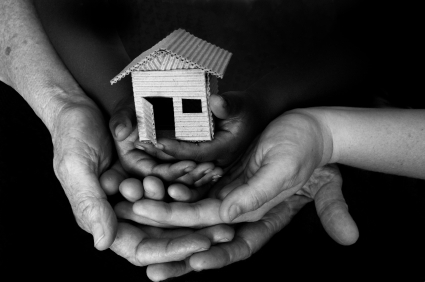Safe Housing is a Public Health Issue
 National Hunger and Homeless Awareness Week began last Saturday, and in the District of Columbia, chronic homelessness in the District of Columbia remains a serious problem. In 2013, nearly 7,000 DC citizens identified as homeless. Homelessness affects all aspects of well-being: economic, emotional, and physical, and as such, is a grave public health concern.
National Hunger and Homeless Awareness Week began last Saturday, and in the District of Columbia, chronic homelessness in the District of Columbia remains a serious problem. In 2013, nearly 7,000 DC citizens identified as homeless. Homelessness affects all aspects of well-being: economic, emotional, and physical, and as such, is a grave public health concern.
The relationship between health and homelessness is extremely complex. Homelessness often hinders physical health, hygiene, cleanliness, and basic first aid, and these aspects of neglected health may impact emotional health. Further compounding the issue, when people who are homeless lack access to safe housing, they’re less likely to receive ongoing regular health care. This can exacerbate chronic health issues like hypertension, diabetes, and asthma, and greatly reduces life expectancy.
At Calvary Women’s Services, our approach to health and wellness is holistic. Each of our housing programs provides women with a warm, clean bed to call her own, and provides access to our comprehensive support services programs, including referrals to Medicaid and other healthcare coverage programs for those in need. Having a safe place to stay is crucial in bettering one’s health and wellness, and creates a healthy foundation upon which wider healthy behaviors can rest. At Calvary, women empower themselves by celebrating and building upon their smaller victories while continuing to work toward the larger goal of securing independent housing.
Anne, a former resident, was ready to make changes in her life when she came to Calvary. Her mental illness had gone untreated for 15 years, and her debilitating illness prevented her from working. When she came to Calvary, she found a place at Pathways, our program for women who have been chronically homeless and struggle with mental illnesses. There, she was able to connect with others in similar situations. Three months later, with the support of her case manager and psychiatrist, Anne’s mental illness stabilized. That stability helped her through the rest of the program and into a group home where she is safe, healthy, and happy.
Anne’s experiences are common among women who are homeless, and can be helpful in understanding how housing and health are interwoven. When people who are homeless have access to safe, stable housing, they are much likelier to be able to address their health concerns. It is truly inspiriting to witness these transformations at Calvary, and we are so proud of each and every woman at Calvary who has empowered herself for a healthier future.
There are many resources online on the relationship between safe housing and health — this fact sheet by the National Coalition for the Homeless is a good primer.